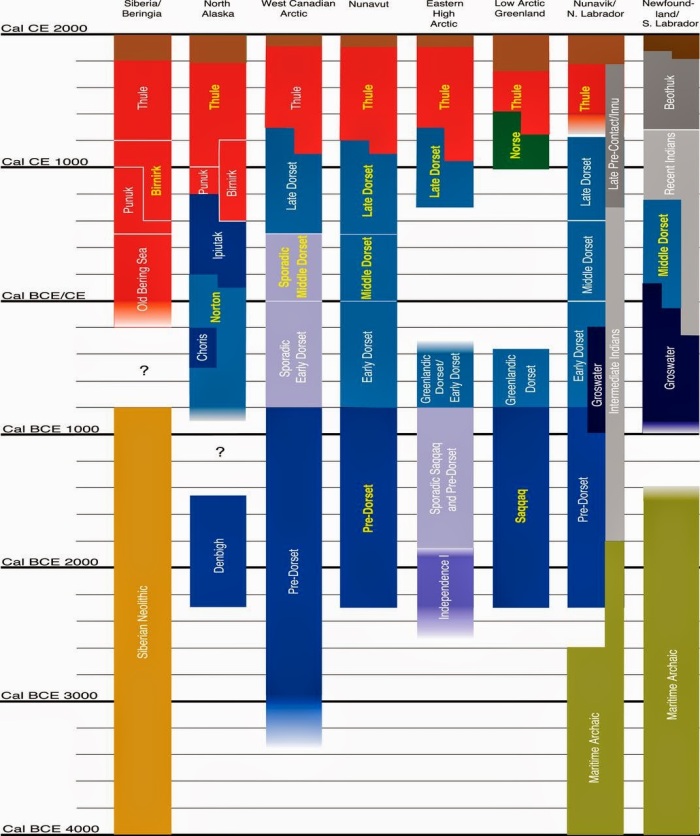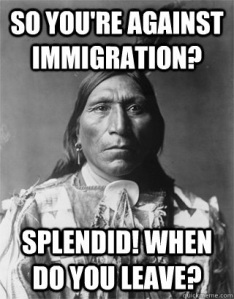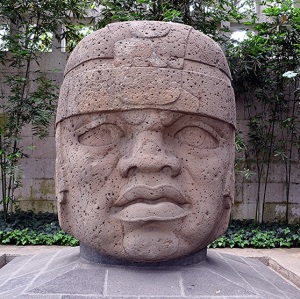I’m not actually against immigration, but I am pro-borders and prefer to live among people I find pleasant, and in this day and age, the two positions are treated as equivalent.
Why borders? Why can’t we all just go wherever we want? Why should a mere accident of birth condemn one person to live in a god-forsaken hellhole, and another to live somewhere peaceful and prosperous?
To be perfectly honest, I don’t like god-forsaken hellholes anymore than the next guy.
So I have a little garden. No trivial undertaking, by the way. Clearing out the brush, pulling up the weeds, digging holes, building rock walls and planting beds, and, of course, watering the darn thing has taken hours or work. Many of the plants are perennials started from seed, so I won’t even get to harvest them for several years.
There’s just one problem: the land isn’t mine. It’s an unattended lot that was a neighborhood eyesore. I’m trying to turn it into something nice, but the owners could come back at any point and mow it all down. For that matter, anyone else in the neighborhood could walk into the garden and take my turnips, pick all my flowers, or knock down my walls. These are problems I have had. And what can I do? Press charges against someone for vandalizing someone else’s property? It doesn’t work that way.
As a result, there are certain improvements that I’m not going to make. Why plant a tree that cold get chopped down? Or buy a pleasant little bench that could get thrown away? For that matter, even a decent lawn mower costs several hundred dollars. Who wants to invest money into something they could lose?
A proper garden requires ownership.
“Why bother at all?” you might be wondering. Because a garden is a lot nicer than as a bunch of dead weeds, and if I get lucky, some of the plants might survive to benefit the neighborhood for years to come.
Each country is a garden. Each country decides what to do with its own resources, how many people they can support, and how they want to conduct their lives. Sometimes countries need more people. Sometimes they need fewer. Sometimes the numbers are just right, but it wouldn’t hurt to switch a few people with another country, to the mutual benefit of everyone.
In no case does a country benefit from allowing in more people than it can feed. California produces a great percentage of America’s food, has had a drought for 1o years, and doesn’t have enough water for all of the crops and people already there. And yet the open-borders advocates want more people to move to California?
If California runs out of water, not only will the local farmers suffer (and no, an orchard someone’s been tending for decades is not something you can just stop watering for a few years,) but so will the rest of the country, especially those whose food budgets are already tight.
In no case does a country benefit from allowing in a bunch of people who are higher crime or lower IQ than the existing population. This should be obvious.
And then there is the more subtle matter of culture. Most people basically like their own cultures, and have little interest in radically changing them (else they would have already.) And culture, as I’ve noted before, is far more than superficial trappings of food and clothing. It’s values. It’s norms of appropriate and inappropriate behavior.
Type-A New Yorkers stuck in Seattle often report being completely miserable because they just can’t cope with the laid-back Seattle attitude. What happens when peoples with radically different values or social norms try to live together? What happens, for example, when French people who believe in freedom of the press and anti-religious values and people who think that drawing pictures of the Prophet Mohammad’s testicles is a blasphemy worthy of death live in the same country?
There is really no solution to this conflict. Either one side has to not print dirty pictures of Mohammad, or the other side has to not kill people for drawing dirty pictures of Mohammad. Better, therefore, to avoid the conflict.
For a country to function, it must be able to select which immigrants it takes in.
For that matter, I believe that a country has a moral obligation to treat its immigrants well; if you cannot guarantee that your fellow countrymen will treat well the immigrants from a certain land, then you should not encourage those immigrants. People deserve to live in places where they are happy, after all.
There’s been a lot of debate recently in the US over Mexican (and more broadly, Hispanic) immigration. Some people would like more Hispanic immigration, perhaps because it appeals to their libertarian instincts, they want cheaper labor, or they love Hispanic people and culture. Others would prefer less immigration, perhaps because they want higher wages, less crime, or just aren’t keen on Hispanic culture.
The Left generally responds to anti-immigrant sentiments by pointing out that previous waves of immigration to the US were total disasters for the people already here. When Europeans arrived in the early 1500s, their diseases exploded through native communities like atomic bombs. The death toll is generally reckoned at 80-90 percent. This was followed, of course, by warfare, enslavement, and genocide.
This seems like approximately the worst argument in favor of immigration ever.
Other waves of immigration, like the 1910 Irish/Italian/Eastern European wave, were accompanied by rising crime; immigration since 1970 has been accompanied by stagnating wages, all of which we have discussed before.
Even Bernie Sanders thinks that full open borders is a capitalist plot to destroy the American worker by forcing wages down to third-world levels.
So why bother making the worst argument in favor of immigration ever?
To imply that whites have no right to their own land. If their land was stolen from someone else, if they are just illegally occupying it, then they have no legal right to it. (And of course, no claim of adverse possession can be made, since the Indians are still around and would prefer their ancestral lands back.) And even if the Indians weren’t around, what sort of precedent does letting people get land by shooting its current owners?
But are the Native Americans the original inhabitants of this land?
No, not in the least.
If you think the Indians arrived here 20,000-40,000 years ago, sat down, and didn’t move until Columbus arrived, you’re delusional.
Humans move around.
Modern Indians are most closely related to the peoples of north east Asia, a point in favor of the Bering Strait hypothesis.
But the earliest settlers of the Americas, before the Clovis Culture even began, appear to be a totally different group most closely related to the people of Papua New Guinea, Australia, and Melanesia. We now have skeletal remains, artifacts, and genetics (not to mention the timeline in which people otherwise made it from the arctic to the rainforest in record time), all of which point Melanesians as the first Americans.
The later invaders, ancestors of today’s Indians, wiped most of them out. Only a few groups with significant Melanesian DNA remain, most of them deep in the rainforest.
Peter Frost reports a similar finding from Mexico:
“Similar findings have emerged from analysis of skulls from Mexico dated to between 9,000 and 11,000 years ago and skulls from Colombia dated to between 7,500 and 8,300:”
And quotes from Gonzalez-Jose et al, 2005,(pdf)
“To summarize, analyses of individual skulls against reference samples suggest that the early Mexican fossils studied do not share a common craniofacial morphology with Amerindians or East Asians, as reported elsewhere for South Paleoindians, some North Paleoindian specimens […] and some modern groups like Fuegian-Patagonians and the Pericúes from Baja California.”
I know nothing about the Pericues, but the Fuegian-Patagonians are really interesting. IIRC, they’re a language isolate living in a very cold environment, and when Europeans first arrived, they basically had no clothes. They just carried fires around with them everywhere they went–in their canoes, while hanging out, everywhere. Hence the region’s name, “Land of the Fire.” One imagines they must have been cold a lot, but maybe they were perfectly happy with the temperatures.
Of course, people have been saying that the giant Olmec stone heads look like Africans for approximately forever, and they have a point:
Further north, a third (or fourth, or whatever Nth,) wave of people, the Dorset, survived in the arctic for over 4,000 years, until the Thule (ancestors of today’s Inuit/Eskimo) showed up. It’s unlikely that the Dorset suddenly forgot how to live in the arctic, nor do the Thule show any signs of having intermarried with the Dorset. The Dorset, as they say, were “replaced.” The Thule killed them.

Take a look around, and you’ll find conquering everywhere. The Mayans, Incas, and Aztecs created empires by conquering the people around them. The Aztecs marched home their prisoners of war and sacrificed them to their gods, ripping out their still-beating hearts. Lovely people, I’m sure.
Of course, the Americas are not the only places this has happened. The historical occupants of South Africa were the Bushmen, hunter-gatherers who’d been isolated from the rest of humanity for almost 100,000 years before anyone else showed up in the area. South Africa’s dominant group today, the Bantus, are more closely related to Koreans than Bushmen.
Compare:
Distribution of art attributed to the Bushmen vs:

Bantus are newcomers, having only arrived in northeastern South Africa within the past couple millenia, and having been largely absent from the cape when Europeans settled there. (That is, most of the people in the area of Cape Town were Bushmen, and after them, most of the people in Cape Town and its surrounding area were Dutch. Major Bantu presence in the area came later.)
The Chinese who moved to Taiwan following the Chinese Civil War are distinct from the Taiwanese Chinese, who displaced the ethnic Taiwanese, who have legends about the darker (perhaps Melanesian) people they displaced.
Replacement has happened virtually everywhere on Earth.
“There have been periods where the folks who were already here suddenly say, ‘Well, I don’t want those folks,’ even though the only people who have the right to say that are some Native Americans.” –President Obama, Nov, 2014
Which Native Americans? The ones who wiped out the Dorset? The ones who wiped out the Melanesians? Or maybe the folks in the Amazon rain forest and a few other isolated tribes should get to determine immigration policies for both continents?
Or maybe that sort of thinking is really fucking dumb?
The people who are in France right now have a right to their country and their culture. If they want to let in people from elsewhere, that’s their business. If they decided they don’t like Freedom of Speech anymore and they’d rather make sure no one produces dirty pictures of Mohammad, that’s their business. But if they want to have Freedom of Speech and decide to not let in people who would have an issue with this, that is also their business. If Americans decide they want more Hispanic immigrants to work in their fields and bake enchiladas, that’s their business. If Americans decide they don’t want more Hispanic immigrants, that’s also their business.
Bhutan is one of the hardest countries in the world to visit (much less immigrate to), because the Bhutanese government doesn’t want a bunch of outsiders ruining their way of life. The Andaman islands are even harder to visit, because the islanders have a habit of killing anyone who gets too close. (And well they ought, because after being isolated for so long, any outsiders would most likely be carrying diseases to which the Andamanese have no defenses. Contact with the outside world would probably kill them all.)
The fact that people in the past have waged wars and often lost them does not make me eager to lose a war. The fact that people in the past have been replaced does not make me want to be replaced. The fact that my ancestors might be related to some guys who won a war or might just look kind of like those guys does not mean it makes any sense to suddenly declare that we (by which I mean everyone currently here, regardless of ethnic background) do not have a right to decide where we should go from here.



[…] Source: Evolutionist X […]
LikeLike
Absolutely. It seems all peoples would “colonize” given the opportunity and means.
LikeLiked by 1 person
So the colonial possessions in Africa were OK because “we” were just going home?
LikeLike
Who is “we”? I don’t think I ever had any colonial possessions in Africa.
More seriously, the post does not pass moral judgment either way on conquering. Conquering is generally beneficial for the conquerors and quite unpleasant for the conquered; people tend to judge the morality of conquering based on which end they’re on.
LikeLike
thing is even for native americans (whous numbers now surpass theirs before columbus) the net benifit was in the end greater then net harm. Without the white man they would now propably live in underdeveloped 3rd world hellholes while under the white men theyr citezens of 1st world countries and all their current problems seem miniscule compared to the once their ancestors endured without all the stuff white people invented. The net harm of white conquest should be weight with the net benefit of white inventions and white ideas. Lets say whites killed 10 million africans, but how many hundreds of million africans did white medicine and general order brought by white government structures save?
LikeLike
This is an argument that tends not to sit well with people; if I proposed to you a 90% chance you would die in exchange for wealth and prosperity 500 years down the line for the descendants of the 10% who didn’t die, you probably wouldn’t take that gamble, even if taking it would actually increase net happiness and well-being.
But each of us is descended from that 10% somewhere along the line–everyone’s ancestors got conquered by the Mongols or decimated by Bubonic Plague or were hereditary serfs or suffered through Holodomor or the like. Even the folks in the Andaman islands have probably been conquering each other back and forth over the years. At this point, we’re all descended from people who suffered. But none of us is our ancestors; each of us is living right now, dealing with the world as it is right now. And the world right now is actually a pretty nice place, what with the medicines and doctors and low crime rates and so on and so forth.
LikeLike
I am not sure how you decide what a “group” is without morality much less which group is entitled to a spot of ground.
I guess I just need to get a better understanding of what morality is.
LikeLike
“Morality” is a matter of great debate.
In general, I think we can divide morality into “the morality of your ancestors” and “the morality of others.”
The morality of your ancestors is the morality that resulted in you existing. These are the collective norms and values of your ancestors, most likely things like “Work hard, get married, provide for my children.” This morality corresponds most closely to what conservatives advocate: make lots of babies and slaughter your enemies, taking their land and giving it to your babies. Like it or not, these are the strategies that created you, because people who didn’t take this route didn’t reproduce and so didn’t become your ancestors.
I call this mitochondrial morality (see my post on meme mitochondria memes vs meme viruses,) because it gets passed down to you from your parents and is optimized to ensure your (and your children’s) survival, but not anyone else’s.
The morality of others is what other people want you to do. Other people do not want you to conquer them and take their land, and they will do their best to convince you not to. Other people would prefer, instead, that you nicely hand over your land to them. This morality corresponds most closely to what liberals advocate: give your stuff to other people to benefit them at your own expense. Like a virus, this morality spreads from other people, and is dependent on you spreading it on to other people, but does not care if it weakens (or kills) you or prevents you from reproducing. Under this moral system, perhaps the most moral thing you could do is kill yourself to donate all of your organs to other people.
People generally settle on some combination of these two systems.
Genetically speaking, it is sensible to cooperate with people who are your relatives, because their economic success leads to the proliferation of your genes; it makes economic sense to cooperate with people who will make you richer. Not everything has to be a zero-sum game; this is why we have complex societies, but this only works so long as cooperators in a complex society don’t get out-competed by defectors.
As for groups, the people that are living in and making a society function own that society and the land it’s on. I don’t think people are entitled to land just because their ancestors lived there; humans have moved around throughout history, and the idea of everyone reverting to their distant ancestor’s starting positions is absurd. The Indians would have to go back to Siberia, the Bantus to Nigeria, the Indo-Europeans would have to chop themselves in half and send half to the Ukraine and half to Europe, etc. Neither does that imply that people should be willing to hand over cultures or societies they’ve worked hard to create to people who didn’t make them. The Indians were not obligated to let whites settle here. Japan doesn’t have to let in anyone Japan doesn’t want to let in; they are not letting in a million third-worlders, because the Japanese want to keep Japan the way it is. And I’m not obligated to let someone move to my country whose company I don’t enjoy. Not because of my ancestors, but because the alternative is absurd.
LikeLike
Vertically transmitted morality vs. horizontally transmitted morality (where vertical dimension is time, ofc)? :)
LikeLike
I think of vertical as transmitted to you by parents/respected elders, vs. horizontal transmitted by mass media and friends. I agree that time is a crucial component of vertical transmission (your parents are older than you; their morals stretch back through this line to the past,) whereas horizontal morals are likely to be entirely novel.
LikeLike
[…] dangers of demographics (part 1), South Africa, Democracy, and the dangers of Demographics (pt. 2), Stolen Land, Do Biker Lives Matter? Harleys, Exit, and Thedic Signaling, Species of Exit: The Sentinelese, the […]
LikeLike
[…] the “New World” all the more fascinating for me, with subsequent spotlight-shining bringing the proposed proceedings ever closer to high-definition (and much closer to an actual discovery than anything Columbus […]
LikeLike
[…] the “New World” all the more fascinating for me, with subsequent spotlight-shining bringing the proposed proceedings ever closer to high-definition (and much closer to an actual discovery than anything Columbus […]
LikeLike
[…] deep in the Amazon Rainforest who have extremely little contact with the outside world and are suspected of having Denisovan DNA and thus being potentially descended from an ancient wave of Melanesians who either got to the […]
LikeLike
[…] we discussed previously, it looks like Melanesians may have been the first folks to reach the Americas, but were later conquered and largely wiped out […]
LikeLike
[…] right (excluding the ancient skeletons at the far left): Light Green: Brazilian rainforest dwellers who may be most closely related to Melanesians Light Pink: Aztecs and their relatives Brown: Canadian Indians Green: Bushmen/San Rose: North-East […]
LikeLike
I think I asked this question on my blog: Where/how does the Solutrean Theory fit into this revised timeline, if at all?
LikeLike
Technically, it doesn’t address the Solutrean Theory one way or another. I think it looks like most of the evidence is against the Solutrean Theory, but there has been a decent amount of historical cross-Atlantic contact, so I wouldn’t rule out the possibility of some form of ancient contact.
LikeLike
[…] the Inuit/Eskimo and related Russian groups. The Inuit (who appear to have wiped out the earlier Dorset people,) share a great deal of DNA with other Siberians, eg the Yakuts (a Turkic people) and the Nganasan, […]
LikeLike
[…] from the earth fully-formed in the places they currently reside, sit down, and never move. The Inuit conquered and killed off the Dorset (the “Skraelings” the Vikings met and wrote about.) The Aztecs conquered and ate their […]
LikeLike
[…] the “New World” all the more fascinating for me, with subsequent spotlight-shining bringing the proposed proceedings ever closer to high-definition (and much closer to an actual discovery than anything Columbus […]
LikeLike